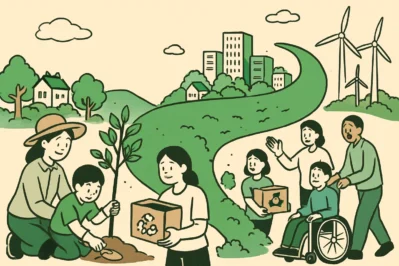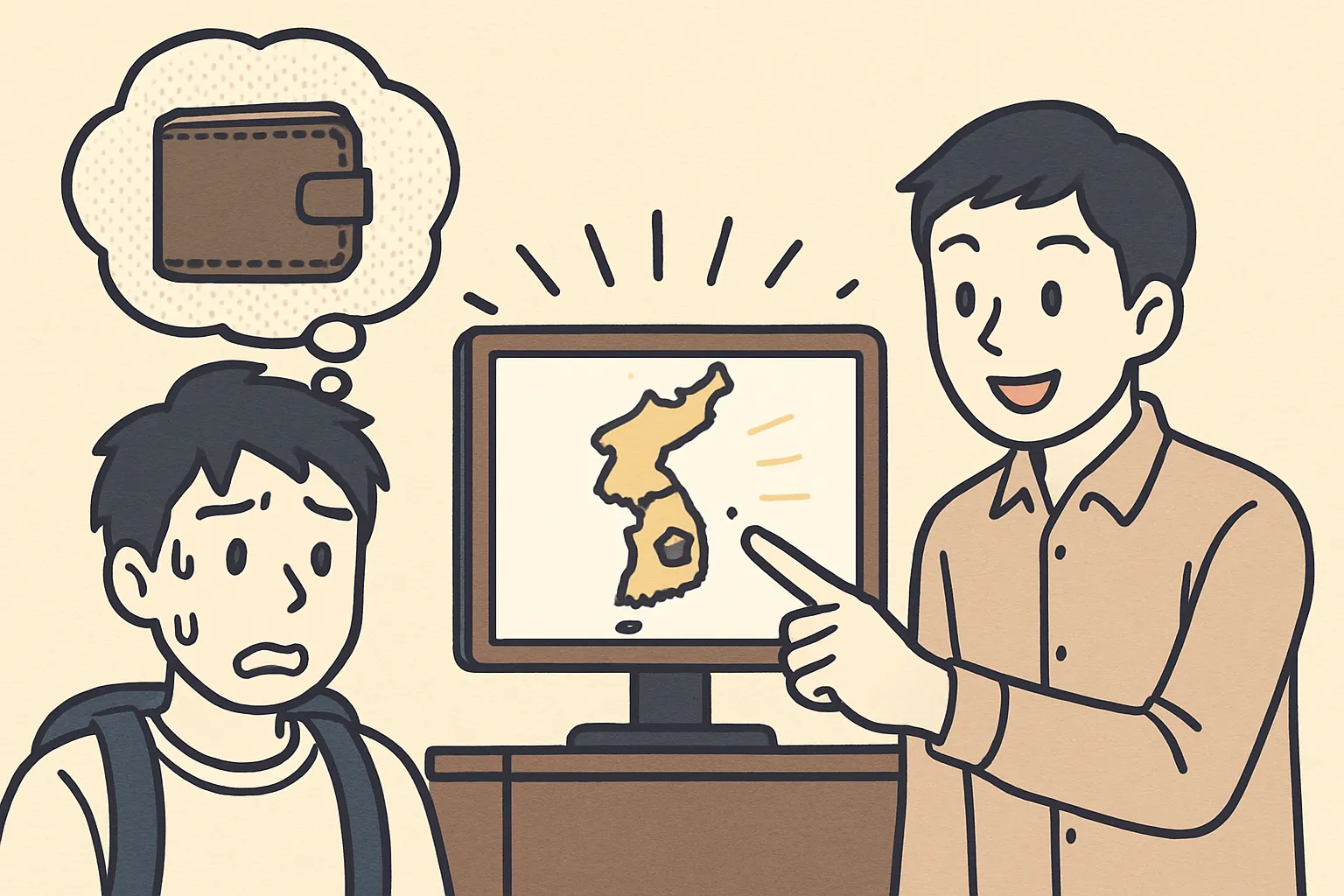SDGs in Seoul: How to Talk About a Better Future in Korean
Hello! This is Maeil Hangeul, here to upgrade your Korean skills!
Today, we’re tackling a topic that is both globally important and increasingly central to conversations in modern Korea: how to discuss the Sustainable Development Goals (SDGs) and the vital role of local communities. You might think this sounds academic, but trust me, it’s incredibly useful! These days in Korea, there’s a huge surge in interest around ESG (환경, 사회, 지배구조 – Environmental, Social, and Governance). From corporate strategies to café chats among university students, people are passionate about creating a better society. Knowing how to articulate these ideas will allow you to participate in these deep, meaningful conversations and truly connect with what’s on people’s minds.
Let’s dive in and learn how to talk like a true global citizen in Korean!
Core Expressions You Need to Know
Here are five key expressions that will empower you to discuss sustainability and social responsibility.
1. 지속가능발전목표 (Sustainable Development Goals)
- Pronunciation [Romanized]: Ji-sok-ga-neung-bal-jeon-mok-pyo
- English Meaning: Sustainable Development Goals (often abbreviated to SDGs)
- Detailed Explanation: This is the official term for the SDGs. Let’s break it down: 지속가능 (jisok-ganeung) means “sustainable,” 발전 (baljeon) means “development,” and 목표 (mokpyo) means “goals.” While it’s a long phrase, it’s used frequently in news, academic settings, and official documents. In casual conversation, people often just say ‘SDGs’ (에스디지스). Using the full Korean term shows a high level of proficiency and seriousness about the topic.
2. 사회적 책임을 다하다 (To fulfill one’s social responsibility)
- Pronunciation [Romanized]: Sa-hoe-jeok chaeg-im-eul da-ha-da
- English Meaning: To fulfill one’s social responsibility
- Detailed Explanation: This is a formal and powerful phrase used to describe the duty that individuals, and especially corporations, have towards society. 사회적 책임 (sahoejeok chaegim) means “social responsibility.” The verb 다하다 (dahada) is key here; it means “to fulfill” or “to carry out completely,” implying a deep commitment rather than a superficial effort. You’ll often hear this when discussing ethical corporate management or an individual’s civic duty.
3. 풀뿌리 민주주의 (Grassroots Democracy)
- Pronunciation [Romanized]: Pul-ppu-ri min-ju-ju-ui
- English Meaning: Grassroots democracy
- Detailed Explanation: This term beautifully illustrates the power of local communities. 풀뿌리 (pulppuri) literally means “grass roots.” Just like in English, it refers to movements and efforts that start from the local, ordinary citizen level rather than being imposed from the top down. It’s the perfect term to use when describing community-led projects, local environmental campaigns, or citizen participation in governance, all of which are crucial for achieving the SDGs.
4. 선한 영향력 (Positive Influence)
- Pronunciation [Romanized]: Seon-han yeong-hyang-ryeok
- English Meaning: Positive/Good influence
- Detailed Explanation: This is an extremely popular, modern phrase in Korea! 선하다 (seonhada) means “to be good” or “virtuous,” and 영향력 (yeonghyangnyeok) is “influence.” It’s used to describe the positive impact that celebrities, companies, or even ordinary people can have on society. For example, when fans of a K-pop group donate to a charity in their idol’s name, it’s a perfect example of 선한 영향력. It connects directly to the idea that everyone can contribute to a better world.
5. 보탬이 되다 (To be of help / To contribute to)
- Pronunciation [Romanized]: Bo-taem-i doe-da
- English Meaning: To be of help; to be an addition; to contribute to
- Detailed Explanation: While you may know the basic verb for “to help” (돕다), 보탬이 되다 offers a more nuanced meaning. It implies adding your effort to a larger cause, becoming a helpful component of a bigger project. It’s less about a single act of helping and more about contributing to a collective goal. It’s a humble and collaborative way to express your desire to make a difference. For example, “I want to be of help to the environmental movement” (저는 환경 운동에 보탬이 되고 싶어요).
Example Dialogue
Let’s see how these expressions work in a real conversation between two friends, Ji-hye and Kevin, discussing a news article.
A (지혜): 케빈, 이 기사 봤어? 한 기업이 플라스틱 사용을 줄이기 위한 캠페인을 시작했대. 지속가능발전목표 달성을 위한 노력의 일환이래.
A (Ji-hye): Kevin, did you see this article? A company started a campaign to reduce plastic use. They say it’s part of their effort to achieve the Sustainable Development Goals.
B (케빈): 와, 정말 좋은 소식이네. 기업들이 이렇게 사회적 책임을 다하는 모습을 보니 기분이 좋다.
B (Kevin): Wow, that’s great news. It feels good to see companies fulfilling their social responsibility like this.
A (지혜): 맞아. 그리고 이런 큰 움직임도 중요하지만, 우리 동네에서 시작된 작은 재활용 모임 같은 풀뿌리 민주주의 활동도 중요하다고 생각해.
A (Ji-hye): Right. And while these big movements are important, I think grassroots democracy activities, like the small recycling group that started in my neighborhood, are also crucial.
B (케빈): 동감이야. 그런 작은 실천들이 모여서 사회 전체에 선한 영향력을 미치는 거지. 나도 그 모임에 참여해서 조금이라도 보탬이 되고 싶다.
B (Kevin): I agree. It’s those small actions that come together to have a positive influence on society as a whole. I’d like to join that group and contribute, even in a small way.
Culture Tip & Trend Deep Dive: The “Good Influence” Phenomenon
In Korea, the concept of 선한 영향력 (seonhan yeonghyangnyeok) has become a massive cultural trend, especially among younger generations. It’s deeply tied to fandom culture and social media. When a celebrity quietly donates to a cause or promotes an ethical brand, their fans often organize and amplify that action, creating a powerful ripple effect.
This isn’t just for celebrities. The Z-generation in Korea is highly conscious of where they spend their money, often choosing to support brands that align with their values (a practice called ‘가치 소비’ – value-based consumption). Companies are keenly aware of this. Promoting their ESG initiatives is no longer just a report—it’s a core marketing strategy to build a brand image of having a “good influence.”
So, when you use a phrase like 선한 영향력 or talk about 사회적 책임, you’re not just using advanced vocabulary; you’re tapping directly into a major social and economic current in contemporary Korea.
Let’s Wrap Up & Practice!
Fantastic work today! We’ve learned some sophisticated and highly relevant vocabulary for discussing sustainability and social action. You can now talk about the 지속가능발전목표 (SDGs), the importance of 사회적 책임을 다하다 (fulfilling social responsibility), the power of 풀뿌리 민주주의 (grassroots democracy), and how we can all spread 선한 영향력 (positive influence) and 보탬이 되다 (be of help) to our communities.
Now, it’s your turn to practice!
- Fill in the blank:
그 가수의 팬들은 숲을 만들기 위해 기부하며 ___________을 보여주었다. (The singer’s fans showed their __________ by donating to create a forest.) -
Your Turn:
Think about a social or environmental issue you care about. Using the phrase ~에 보탬이 되고 싶다 (~e botaem-i doego sipda), write one sentence in Korean about how you would like to contribute.
Share your answers in the comments below! We are excited to see how you use these powerful expressions. Keep up the great work






